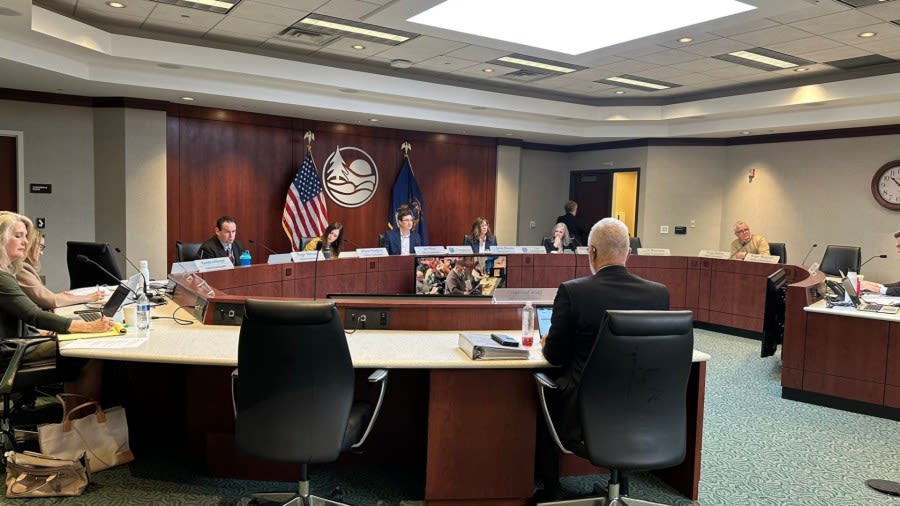Search results
People also ask
How does the First Amendment protect freedom of religion?
Does the First Amendment cover religion?
How does the First Amendment affect religion?
What rights are protected by the First Amendment?
The First Amendment guarantees freedoms concerning religion, expression, assembly, and the right to petition. It forbids Congress from both promoting one religion over others and also restricting an individual’s religious practices.
- Bill of Rights
First Amendment [Religion, Speech, Press, Assembly, Petition...
- Fighting Words
Fighting words are words meant to incite violence such that...
- Establishment Clause
The First Amendment's Establishment Clause prohibits the...
- Libel
However, the U.S. Supreme Court has held that the First...
- Obscenity
Obscenity is a category of speech unprotected by the First...
- Media
New York, 268 U.S. 652 (1925): "[F]reedom of speech and of...
- Unlawful Assembly
An unlawful assembly is the meeting together of three or...
- Advocacy of Illegal Action
The advocacy of illegal action is a category of speech not...
- Bill of Rights
- Religion in Colonial America
- Roger Williams
- First Amendment
- Religious Intolerance in The United States
- Landmark Supreme Court Cases
- Muslim Travel Bans
- Sources
America wasn’t always a stronghold of religious freedom. More than half a century before the Pilgrims set sail in the Mayflower, French Protestants (called Huguenots) established a colony at Fort Caroline near modern-day Jacksonville, Florida. The Spanish, who were largely Catholic and occupied much of Florida at the time, slaughtered the Huguenots...
In 1635 Roger Williams, a Puritan dissident, was banned from Massachusetts. Williams then moved south and founded Rhode Island. Rhode Island became the first colony with no established church and the first to grant religious freedom to everyone, including Quakers and Jews. As Virginia’s governor in 1779, Thomas Jeffersondrafted a bill that would gu...
In 1785, Virginia statesman (and future president) James Madison argued against state support of Christian religious instruction. Madison would go on to draft the First Amendment, a part of the Bill of Rightsthat would provide constitutional protection for certain individual liberties including freedom of religion, freedom of speech and the press, ...
Mormons, led by Joseph Smith, clashed with the Protestant majority in Missouriin 1838. Missouri governor Lilburn Boggs ordered that all Mormons be exterminated or expelled from the state. At Haun’s Mill, Missouri militia members massacred 17 Mormons on October 30, 1838. In the late nineteenth and early twentieth centuries, the U.S. government subsi...
Reynolds v. United States (1878): This Supreme Courtcase tested the limits of religious liberty by upholding a federal law banning polygamy. The Supreme Court ruled that the First Amendment forbids government from regulating belief but not from actions such as marriage. Braunfeld v. Brown (1961): The Supreme Court upheld a Pennsylvanialaw requiring...
In 2017, federal district courts struck down the implementation of a series of travel bans ordered by President Donald J. Trump, citing that the bans—which discriminate against the citizens of several Muslim-majority nations—would violate the First Amendment’s Establishment Clause.
America’s True History of Religious Tolerance; Smithsonian.com. Religious Liberty: Landmark Supreme Court Cases; Bill of Rights Institute. First Amendment; Legal Information Institute.
News about First Amendment, religious freedom, free speech
News about Satanic Temple, Washington County, Robin Handler
News about Donald Trump, Christian nationalism, Christianity
Also in the news
The First Amendment has two provisions concerning religion: the Establishment Clause and the Free Exercise Clause. The Establishment clause prohibits the government from "establishing" a religion. The precise definition of "establishment" is unclear. Historically, it meant prohibiting state-sponsored churches, such as the Church of England.
Dec 4, 2017 · The First Amendment to the U.S. Constitution protects the freedom of speech, religion and the press. It also protects the right to peaceful protest and to petition the government. The amendment...
Jul 17, 2023 · The first 16 words of the First Amendment to the U.S. Constitution, “Congress shall make no law respecting an establishment of religion, or prohibiting the free exercise thereof,” protect the right of every person to practice religion in accordance with conscience and guard against creation of a sectarian state.
Jun 22, 2023 · The First Amendment of the Constitution contains two clauses related to religious freedom: the Establishment Clause and the Free Exercise Clause.
Freedom of Religion. Two clauses in the First Amendment guarantee freedom of religion. The Establishment Clause prohibits the government from passing legislation to establish an official religion or preferring one religion over another. It enforces the "separation of church and state."


